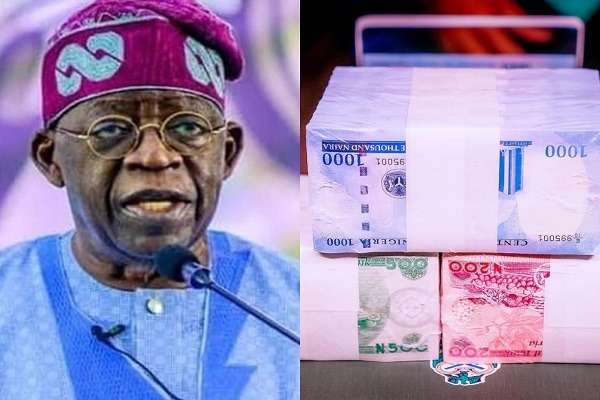The Presidency, under President Bola Tinubu’s leadership, reiterated its commitment to stabilizing Nigeria’s economy, particularly focusing on the recent successes in stabilizing the naira.
Led by Yemi Cardoso, the Central Bank of Nigeria (CBN) has implemented various measures aimed at curtailing the free fall of the naira and restoring it to a fair value.
Join our WhatsApp ChannelAjuri Ngelale, the Special Adviser to the President on Media and Publicity, emphasized the administration’s multi-faceted approach to combatting malign actors and sharp practices in the foreign exchange market. Ngelale assured Nigerians of a stronger naira, which would ultimately lead to a significant drop in the prices of essential commodities by the first quarter of 2025.
The recent policies enacted by the CBN, including unifying exchange rate windows, liberalizing the FX market, and implementing measures to clear FX backlog obligations, have contributed to the strengthening of the naira against the dollar. Analysts have noted the pivotal role these reforms have played in stabilizing the exchange rate.
In line with the government’s commitment to eradicating economic malpractices, regulatory agencies are intensifying efforts to crack down on racketeers and malign actors in the FX market and banking sector. The administration aims to tackle inflation and ensure that the benefits of economic reforms translate into tangible improvements in the lives of Nigerians.
READ ALSO: Why CBN Banned Use Of Foreign Currency Collaterals For Naira Loans
President Tinubu’s decision to discontinue subsidies on petrol and unify foreign exchange rates faced initial challenges, leading to instability in the value of the naira and increased hardship for citizens. However, these measures are part of a broader strategy to create a more sustainable economic framework.
Despite early gains, the Presidency acknowledges that there is still work to be done. Consumer protection agencies have been directed to ensure that local prices reflect the rising value of the naira. Additionally, the expected resumption of operations by both private and government-owned crude oil refineries is anticipated to boost revenue and strengthen the economy further.
The recent appreciation of the naira to N1,200/dollar at the parallel market is a testament to the effectiveness of the CBN’s interventions. Bureau De Change operators have reported a decrease in demand for foreign currency, contributing to the stability of the exchange rate.
In response to calls from various stakeholders, the CBN has adjusted its exchange rate for BDC operators and mandated Deposit Money Banks to stop using foreign currencies as collateral for naira loans. These measures are expected to increase the supply of foreign exchange in the economy and support economic growth.
The Lagos Chamber of Commerce and Industry (LCCI) and the Small and Medium Enterprises Development Agency of Nigeria (SMEDAN) have voiced their support for these initiatives, emphasizing the importance of reducing reliance on foreign currency-dominated collateral for naira transactions.
Overall, the government remains committed to implementing policies that foster economic stability and improve the welfare of Nigerians. As the administration progresses, the benefits of these reforms are expected to become more evident, paving the way for a brighter economic future for the nation.
Emmanuel Ochayi is a journalist. He is a graduate of the University of Lagos, School of first choice and the nations pride. Emmanuel is keen on exploring writing angles in different areas, including Business, climate change, politics, Education, and others.



















Follow Us